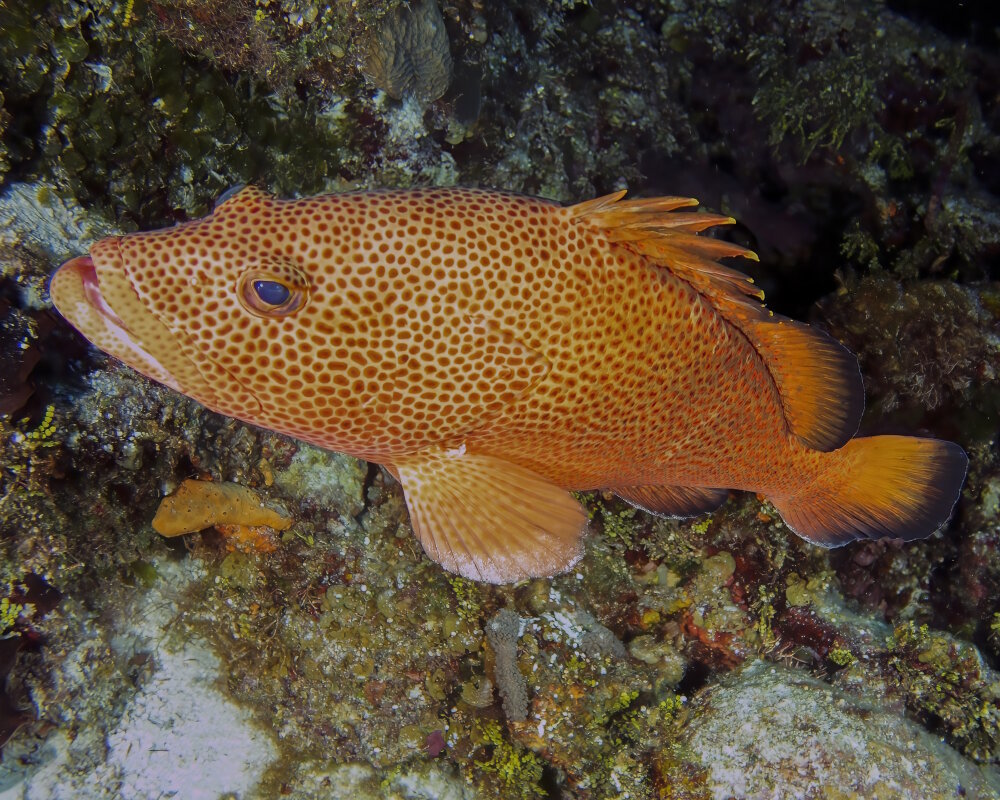Sealife guideThe red hind grouperEpinephelus guttatus
Last updated on 09/02/2025 at 12:22 AM
Taxonomy
- Common name: Red hind grouper, red hind
- French name: Mérou couronné
- Spanish name: Cabrilla colorada
- Scientific name: Epinephelus guttatus (Linnaeus, 1758)
- Family name: Epinephelidae
- Order name: Perciformes
- Class name: Actinopterygii
Description
The red hind grouper has a distinctive appearance, usually beige to brown in color, with numerous red or brown spots covering its entire body and the base of its fins.
Geographic range
The red hind grouper primarily inhabits tropical and subtropical waters of the western Atlantic ocean, notably along the coasts of
Florida, in the Caribbean sea and in the Gulf of Mexico.
Habitat
The red hind grouper is often found in the shallow waters of coral reefs and rocky areas, where it hides in crevices and cavities.
Diet
The red hind grouper feeds mainly on small fish, crabs and shrimp, ambushing its prey from coral reef hiding spots.
Did you know ?
The red hind grouper is listed as many other marine species within The
IUCN Red List of threatened species. The red hind grouper appears in the
IUCN Red List since 2018 within the category Least Concern !

The red hind grouper (Epinephelus guttatus)
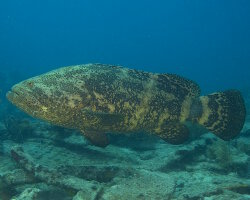
Atlantic Goliath Grouper
(Epinephelus itajara)
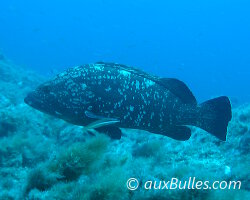
Dusky grouper
(Epinephelus marginatus)
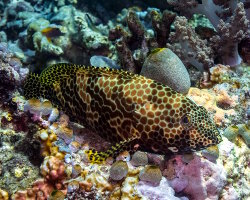
Honeycomb grouper
(Epinephelus merra)

Malabar grouper
(Epinephelus malabaricus)
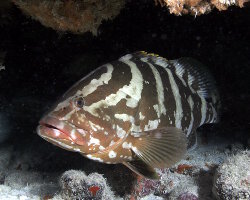
Nassau grouper
(Epinephelus striatus)
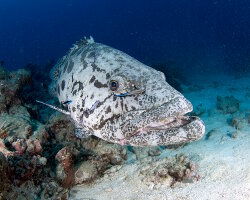
Potato grouper
(Epinephelus tukula)
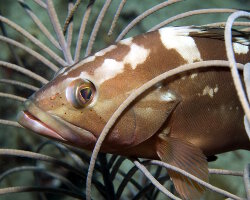
Red grouper
(Epinephelus morio)
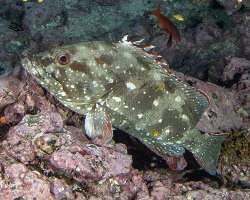
Starry grouper
(Epinephelus labriformis)
Within the same family

Bluespotted grouper
(Cephalopholis cyanostigma)

Coney
(Cephalopholis fulva)

Gag grouper
(Mycteroperca microlepis)
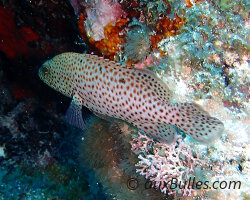
Graysby
(Cephalopholis cruentata)

Halfspotted grouper
(Cephalopholis hemistiktos)

Highfin coral grouper
(Plectropomus oligacanthus)

Pacific creolefish
(Cephalopholis colonus)

Tomato grouper
(Cephalopholis sonnerati)
Discover also

Axelrod's clown blenny
(Ecsenius axelrodi)
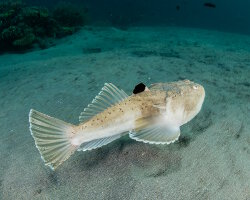
Blackfin stargazer
(Ichthyscopus nigripinnis)
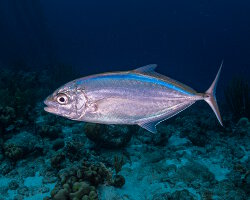
Blue runner
(Caranx crysos)
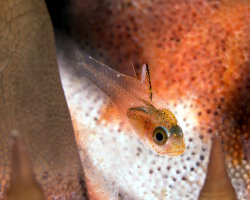
Frostfin cardinalfish
(Ostorhinchus hoevenii)

Indian mackerel
(Rastrelliger kanagurta)

Maldive anemonefish
(Amphiprion nigripes)
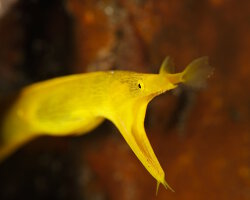
Ribbon eel
(Rhinomuraena quaesita)

Spangled emperor
(Lethrinus nebulosus)
The marine species from Caribbean sea
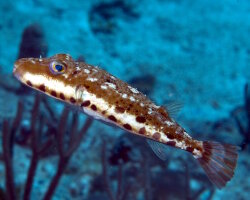
Bandtail puffer
(Sphoeroides spengleri)

Chain moray
(Echidna catenata)
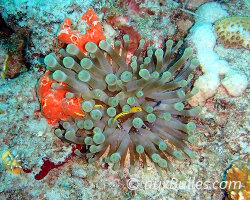
Giant caribbean anemone
(Condylactis gigantea)
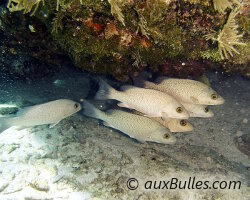
Gray snapper
(Lutjanus griseus)
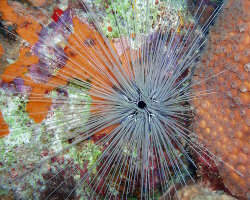
Long-spined sea urchin
(Diadema antillarum)
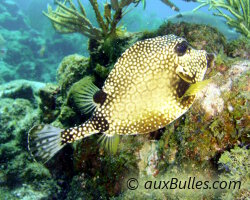
Smooth trunkfish
(Rhinesomus triqueter)

Stoplight parrotfish
(Sparisoma viride)
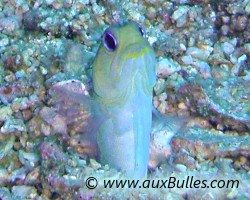
Yellowhead jawfish
(Opistognathus aurifrons)
Dive centers

'Les Ilets' dive center
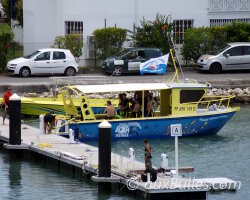
Noa dive center
Our latestUpdates
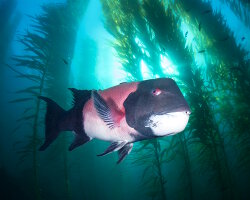
Thursday, October 2nd 2025
The California sheephead
Discover the California sheephead, a colorful fish of the eastern Pacific. Learn about its appearance, diet, habitat in kelp forests, unique sex-changing ability and role in marine ecosystems.
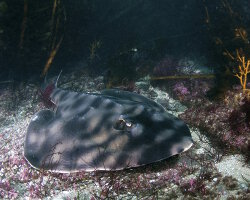
Monday, September 29th 2025
The banded guitarfish
Discover the banded guitarfish, a benthic eastern Pacific species with unique camouflage, living on sandy and rocky bottoms.
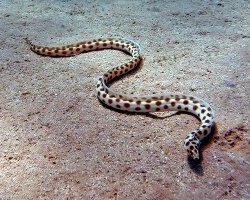
Thursday, September 25th 2025
The tiger snake eel
Explore the tiger snake eel (Myrichthys maculosus), featuring a creamy to pale yellow body dotted with black spots, and learn about its habitat, behavior and role in coral reef ecosystems.
Photo of the Day

Salmacine
(Filograna implexa)









